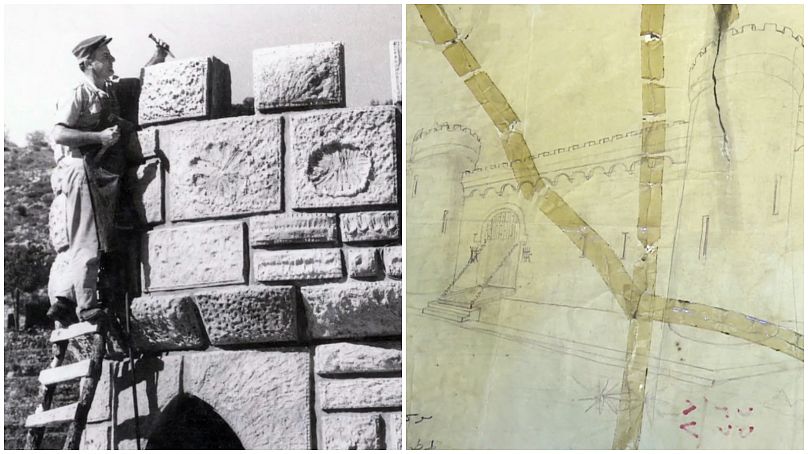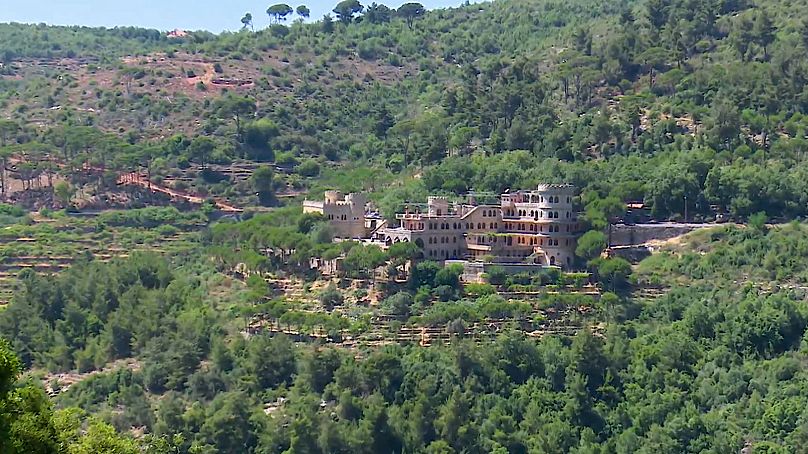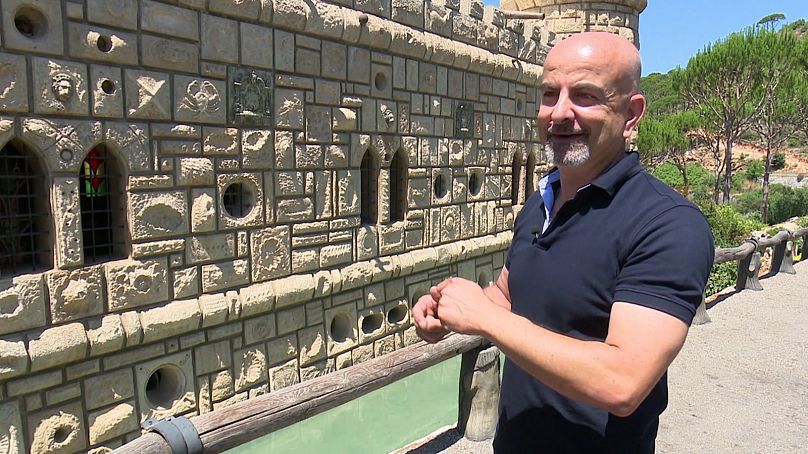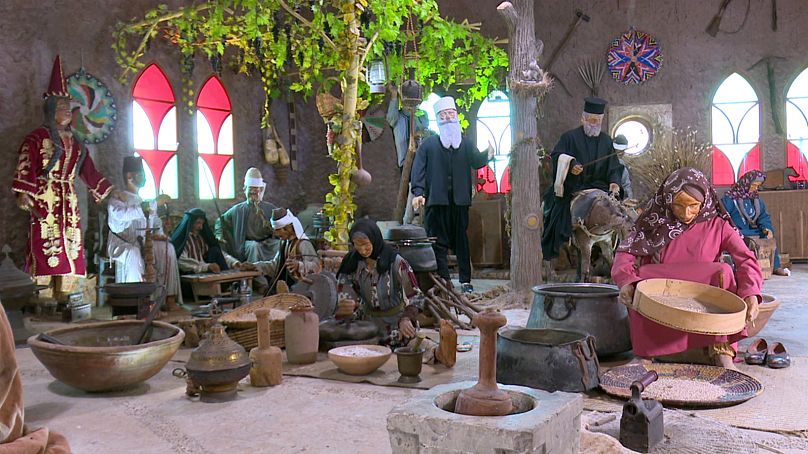In the Lebanese mountains, the site of Qasr Moussa - or Moussa Castle - tells the story of a common man who pursued the dream of building his own castle.
In the Lebanese mountains, the site of Qasr Moussa - or Moussa Castle - tells the story of a common man who pursued the dream of building his own castle.
Moussa Al Maamary first dreamt up the idea aged just 14, to impress a local girl he loved.
After years of working in the restoration of famous national landmarks, Moussa acquired the skills and the finances to make his vision a reality.
In 1962, he laid the foundation stone in the area of Deir el Qamar, around 40 kilometres from Lebanon’s capital, Beirut. It would take another 38 years to complete the structure.
Amongst the region’s historical sites, many of which date back to the 15th century, the 60-year-old castle still stands out on the horizon.
“He built it by his own hand, by himself, stone by stone,” describes Ziad Al Maamary, Moussa’s son and co-manager of the site. “He carved every stone, and every stone has a different design as you see. Every stone is a piece of art.”
Moussa, who passed away in 2018, wanted his castle to be a monument to his love for his country.
Now managed by his three sons, the venue doubles as a museum, welcoming hordes of tourists every year.
The site houses historical artefacts and curiosities spanning over two millennia, including weaponry, tools, jewellery, coinage and crockery.
Alex Karroum, an Australian of Lebanese origin, is amongst the castle’s visitors. He brought his son and nephew on a day trip to Qasr Moussa to teach them about its ancestors.
“It’s really amazing, because the stuff that’s in here is as early as my father and his parents,” he told Euronews. “They’ve got little examples of a number of different things that I haven’t experienced myself but my father and grandparents have.”
The Al Maamary brothers plan to keep adding to the castle’s collections, maintaining their father’s memory.
For Ziad, more than a touristic site, he hopes his father’s accomplishment will serve as inspiration for romantics worldwide.
“He fulfilled his dream and he became a symbol to all generations that nothing is impossible,” he says.















